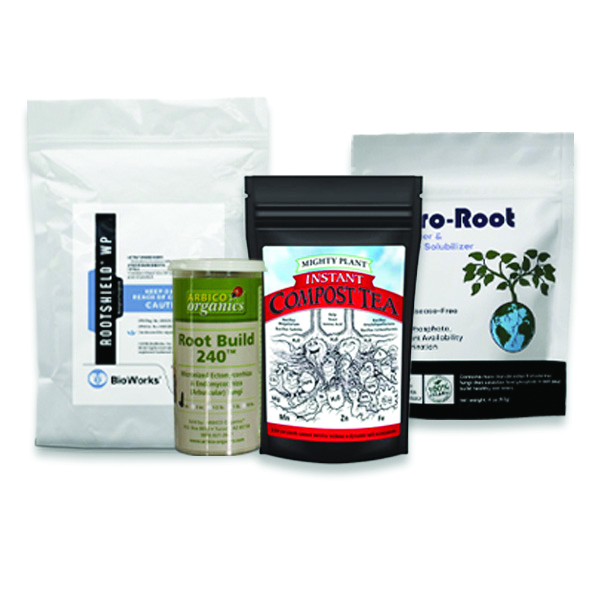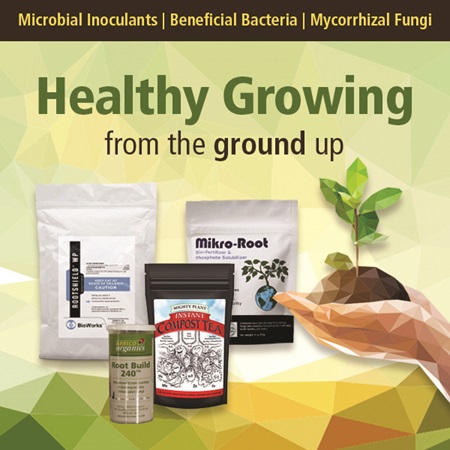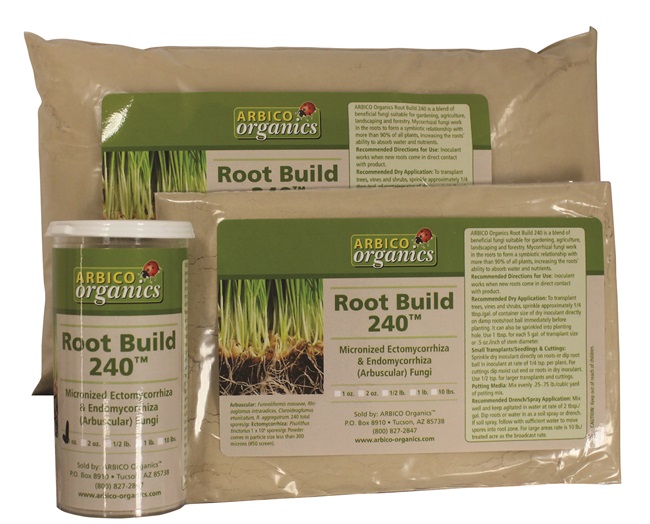
Are you familiar with microbial inoculants? If those two words just gave you flashbacks to high school biology, there’s no need to panic. Microbial inoculants are used to induce beneficial effects in soil and the plants growing in said soil. These inoculants are types of bacteria and fungi. The word “rhizosphere” is often mentioned when discussing microbial inoculants. If you’re unfamiliar with this term, it refers to the thin layer of soil featuring the interactions between a plant’s root system and the various microorganisms living in the soil, including microbial inoculants that you’ve added to your soil.
Now that we’ve gotten some basic definitions out of the way, let’s move on to practical uses of microbial inoculants. As mentioned earlier, you will use microbial inoculants to promote beneficial effects in your soil and plants. Here’s a quick list of common uses:

Soil Restoration: Microbial inoculants can be used to restore soil health in degraded or contaminated environments. A degraded soil environment can come from human actions, such as overgrazing, failure to manage proper crop rotations, deforestation, and pollutants. However, soil degradation also comes about naturally, namely through wind and water erosion. Beneficial microbes help break down pollutants, improve soil structure, and restore microbial diversity.
Agriculture: In agriculture, microbial inoculants can enhance nutrient availability, fix atmospheric nitrogen, promote plant growth, and suppress plant diseases. They can be applied to seeds, soil, or plant surfaces to improve crop yields and reduce the need for chemical fertilizers and pesticides.
Increasing Plant Yields: Using microbial inoculants can increase yields by increasing a plant’s disease resistance, decreasing the likelihood that blight or other plant diseases can wipe out your crop. There are also positive effects—soil with microbial inoculants promotes more efficient water intake and denser root growth for plants. If you’re transplanting, establishing a healthy culture of beneficial microorganisms will also increase your transplant success rate. These benefits are commonly found in mycorrhizal fungi, such as the fungi contained in ARBICO Organics® Root Build 240.

Composting: Microbial inoculants can accelerate the composting process by enhancing decomposition and nutrient cycling. They help break down organic matter more efficiently, resulting in nutrient-rich compost that can be used as soil amendment. Maintaining a separate colony in your compost pile can result in great benefits for your garden.
Bioremediation: Microbial inoculants are used in bioremediation processes to degrade organic pollutants, detoxify contaminated soil, and water, and restore ecosystems affected by pollution. While this isn’t necessarily a concern for your average backyard gardener, it’s still nice to know that you’re contributing to a healthier environment.
Aquaponics/Hydroponics: Microbial inoculants aren’t just limited to soil use. In water-based systems, microbial inoculants can improve water quality, break down organic waste, and reduce ammonia and nitrate levels.
Waste Management: Microbial inoculants are used to better manage waste at disposal plants and water filtration plants. Solid waste composting and wastewater use bacteria to break down waste and reclaim valuable resources. We get it — it’s highly unlikely that you have a waste management facility at your residential home. However, if you’re interested in learning more about the use of microbes in various waste management practices, check out this link.
Sustainable Landscaping: Microbial inoculants can be used in landscaping projects to improve soil fertility, promote plant health, and reduce the need for chemical inputs. They can be applied to lawns, gardens, and green spaces to support sustainable landscaping practices. These helpful bacteria and fungi aren’t just necessary for gardens and greenhouses—they’re also incredibly beneficial if you’re looking to keep a green lawn.
For more information on the various types of microbial inoculants, check out the specialized selection at ARBICO Organics. Happy growing!


Comment here